Master of Science in Biomedical Engineering: Shaping Tomorrow's Healthcare Innovators
19 Feb 2025
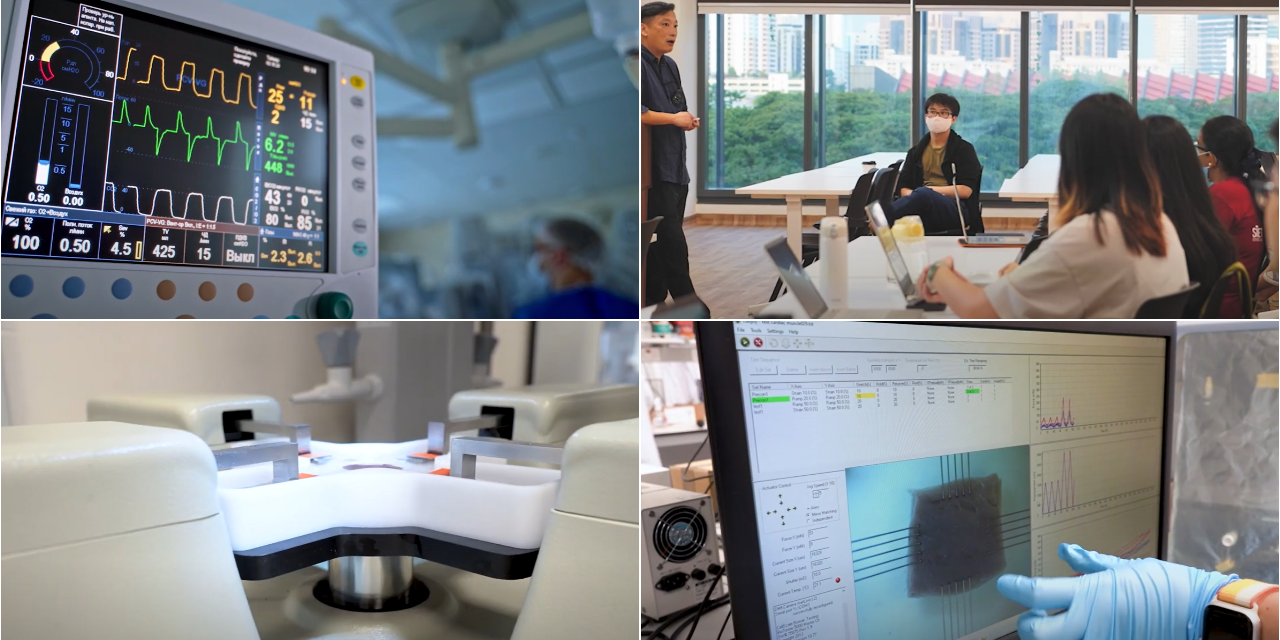
As Singapore positions itself as a global biomedical hub with the world's top medical technology companies establishing a presence here, the demand for skilled biomedical engineering professionals continues to grow.
"Empowering students so they can create an impact in healthcare," stated Associate Professor Poh Chueh Loo, Programme Director of the Master of Science in Biomedical Engineering.
"The biomedical sector produced about $39 billion worth of goods for the global market in 2022, and this growth trajectory is expected to continue," shares Professor Poh in a recent interview. "With the ageing populations contributing to rising healthcare challenges, the need for biomedical solutions is not only increasing but urgent. Our programme is designed to equip students with both engineering and biomedical perspectives needed to address these and foreseeable healthcare challenges."
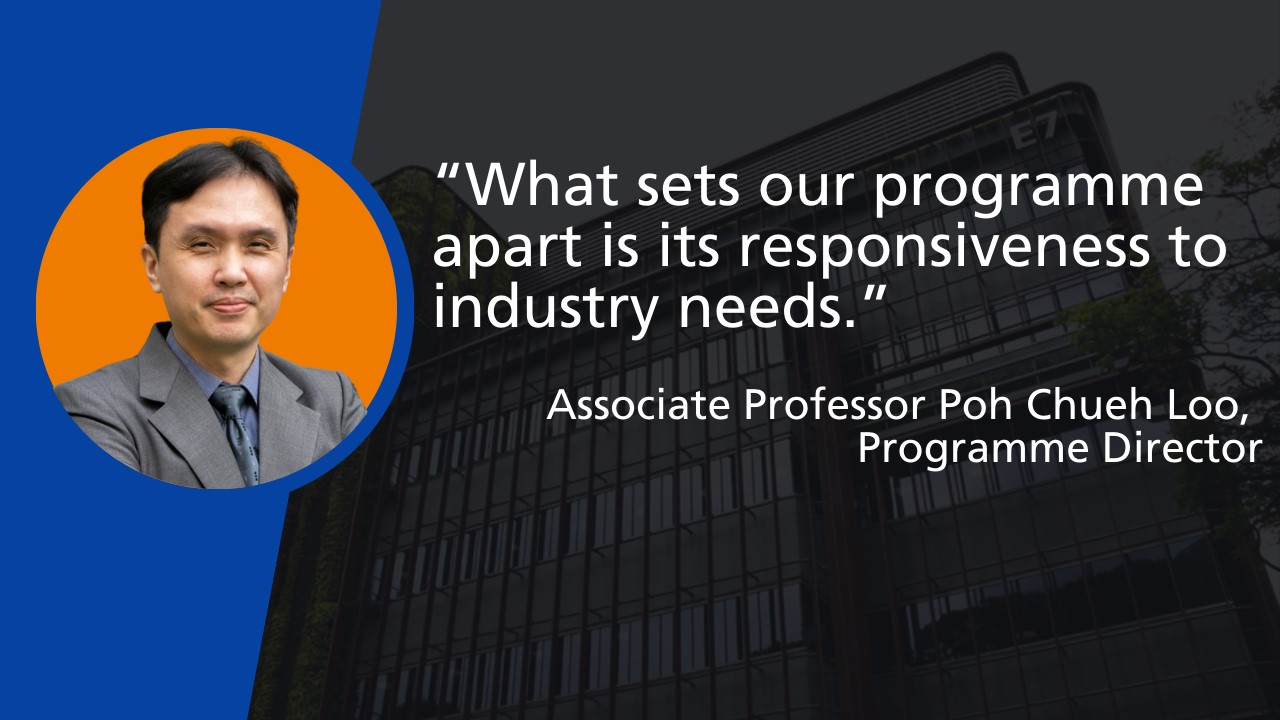
World-Class Faculty Leading Innovation
The programme's strength lies in its distinguished faculty members who are at the forefront of biomedical innovation. During the COVID-19 pandemic, Associate Professor Shao Huilin, recognized among Asia's Top 50 Women in Tech, developed enVision, a groundbreaking platform that can detect COVID-19 in just 30 minutes. Professor Dean Ho, Head of Department, led the creation of IDentif.AI, an artificial intelligence platform that optimises drug combinations for COVID-19 treatment. Professor Lim Chwee Teck, Director of iHealthTech, made significant contributions to the fight against COVID-19 by developing Epidax, a portable point-of-care diagnostic system that can complete COVID-19 screening in about an hour.
“What sets our programme apart is its responsiveness to industry needs.”
The faculty's excellence extends to the classroom. Associate Professor Bina Rai, a recipient of the SCDF Strategic Partner Award and recognised for her outstanding contributions to education, brings her expertise in biomedical engineering education. Associate Professor Alberto Corrias, a fellow of the NUS Teaching Academy known for his innovative work in computational modelling in biology, ensures students receive cutting-edge knowledge while developing practical skills essential for their future careers.
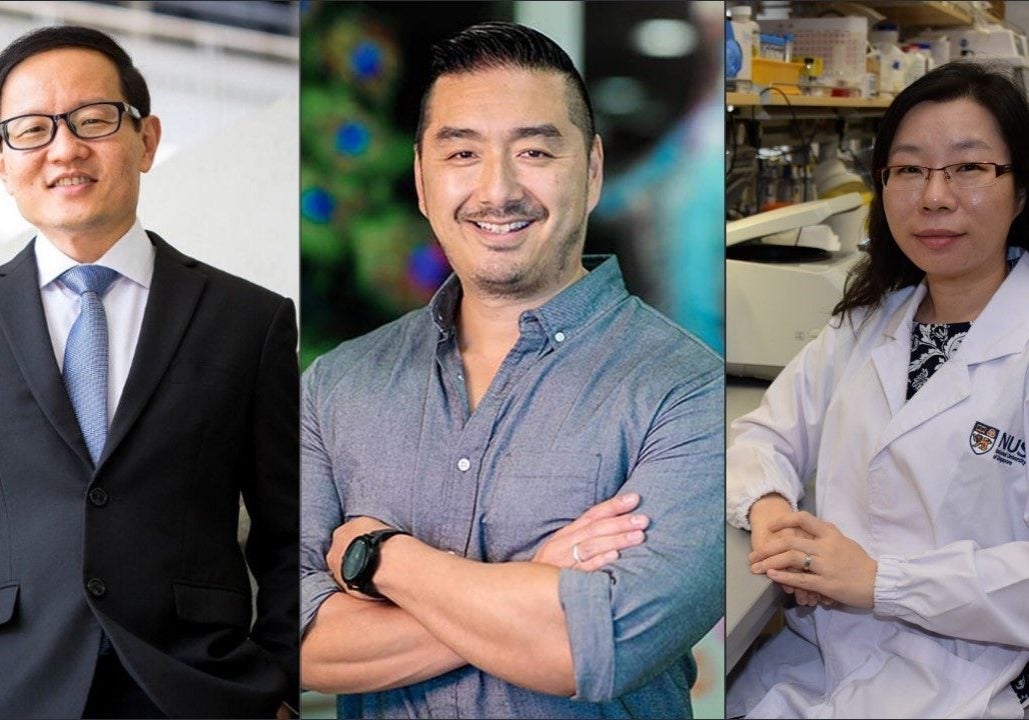
Industry-Aligned Curriculum
"What sets our programme apart is its responsiveness to industry needs," Professor Poh explains. The department regularly introduces new modules based on emerging trends and industry demands. Recent additions include Medical Robotic Intelligence and Advanced Machine Learning for Biomedical Engineering and Sciences, reflecting the industry's technological evolution.
Additionally, the programme has an industrial attachment component that offers students hands-on experience with industry leaders for a full semester. "Students work directly with companies while being guided by our professors, ensuring their experience aligns with both their academic and career goals," notes Professor Poh.
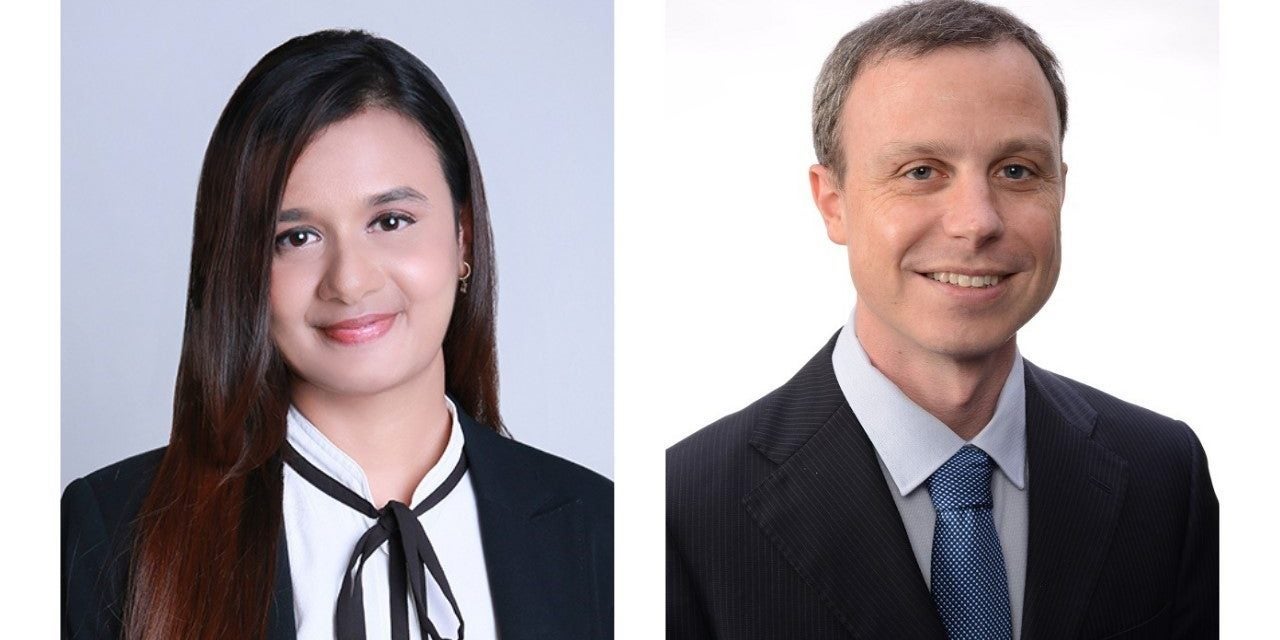
Global Perspectives, Local Impact
The programme's diverse intake creates a unique learning environment. "Our students come from various countries including India, Singapore, and Hong Kong," shares Professor Poh. "This diversity, combined with our interdisciplinary approach, prepares graduates for global careers." The program actively promotes cross-cultural collaboration through its teaching methodology, with random grouping that encourages students to step outside their comfort zones and work with peers from different cultural backgrounds.
Recent graduate Madhumitha Ramanathan reflects on this success: "The interdisciplinary nature of the course stood out to me the most. Collaborating with students from diverse fields and backgrounds gave me a fresh perspective and newfound appreciation for the field." Current student, Kevin Jonathan Gunawan, adds, "Even in the class, students have different undergraduate backgrounds, and we fulfil each other's strengths and weaknesses. This multidimensional learning environment helps us understand biomedical engineering from different perspectives."
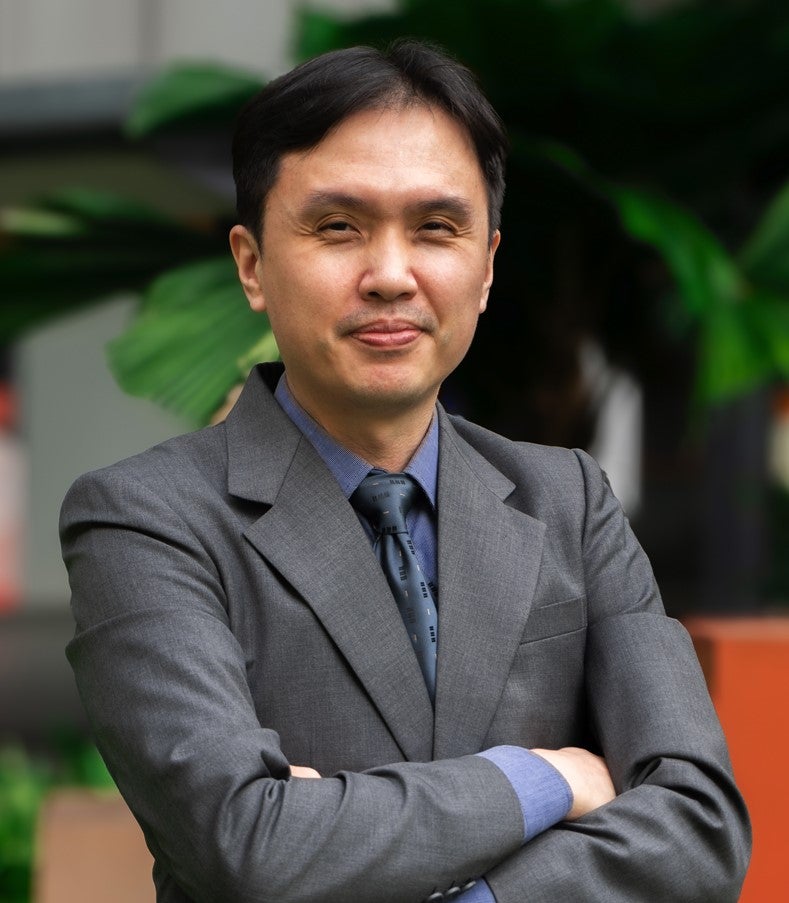
Associate Professor Poh Chueh Loo
Programme Director of the Master of Science in Biomedical Engineering.
This global outlook is further enhanced by NUS' position as the top-ranked university in Asia. The university maintains strong ties with leading institutions and multinational corporations worldwide, offering students unprecedented opportunities to expand their professional networks. As Madhumitha notes, "Living in Singapore was equally enriching - the blend of cultures and thriving atmosphere was a welcome surprise, and I got the opportunity to connect with classmates, researchers and professionals from around the world and learn from their experiences."
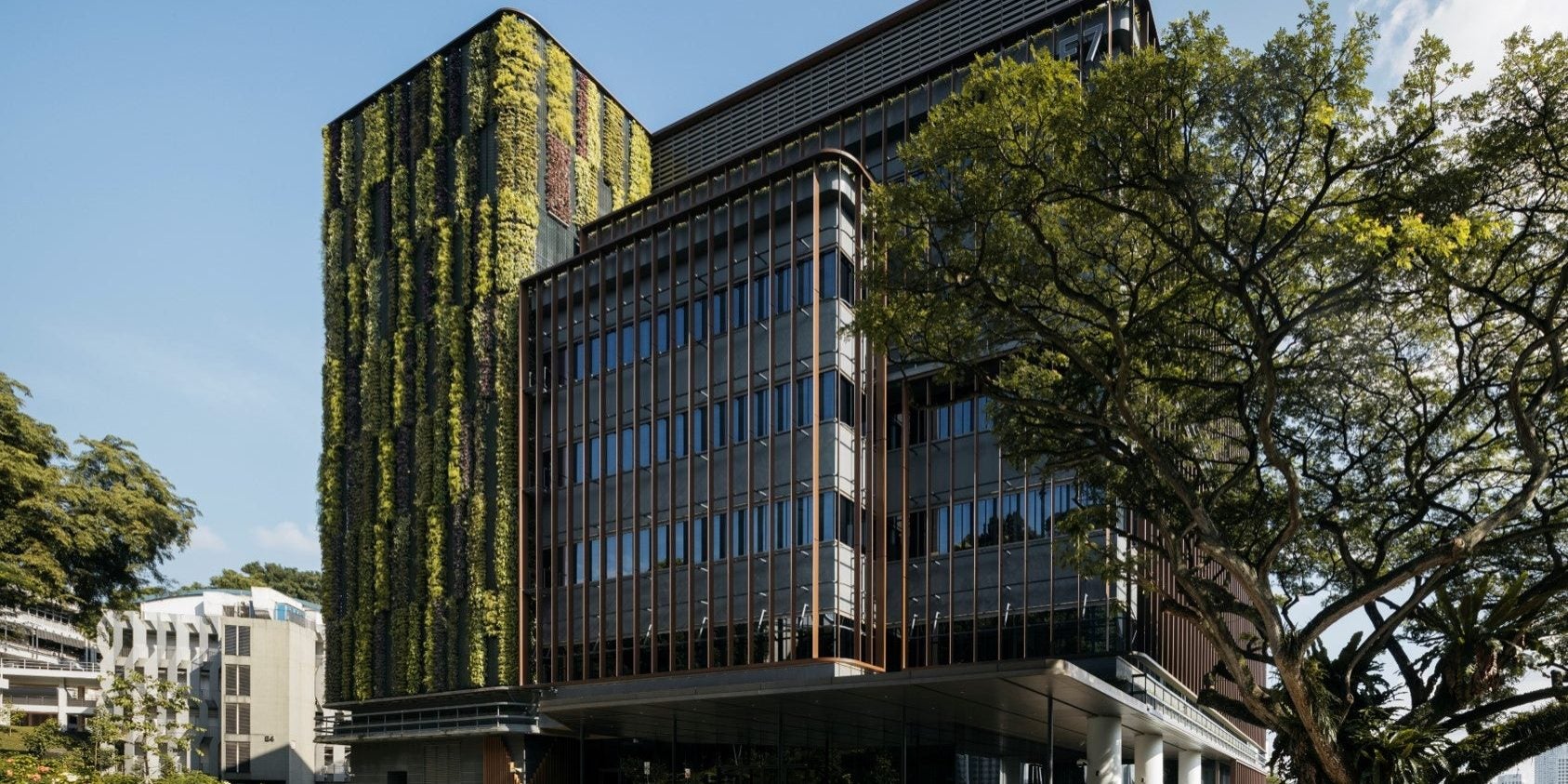
State-of-the-Art Facilities
Students in the MSc programme benefit from access to a comprehensive suite of advanced facilities housed in the state-of-the-art Engineering in Medicine building. The facility includes cutting-edge equipment essential for biomedical research and development, such as 3D Scanners, Electron Microscopes, and Plasma Bonders. The 3D Laser Profiler, for instance, combines confocal microscopy and laser scanning technologies to provide high-resolution imaging and precise 3D surface measurements. The programme's microfabrication capabilities are equally impressive, also utilising world-class equipment.
This extensive infrastructure, supported by over 30 academic staff members who hold joint appointments with various departments and research institutes, creates an unparalleled environment for learning and innovation in biomedical engineering.
Career Prospects
Biomedical engineering graduates have found success across various sectors, from healthcare and research to medical technology and pharmaceuticals. Alumni now work with industry leaders such as National University Hospital, A*STAR, GE Healthcare, and GlaxoSmithKline. Moreover, graduates and faculty have founded over 15 startups, demonstrating the programme's emphasis on innovation and entrepreneurship.
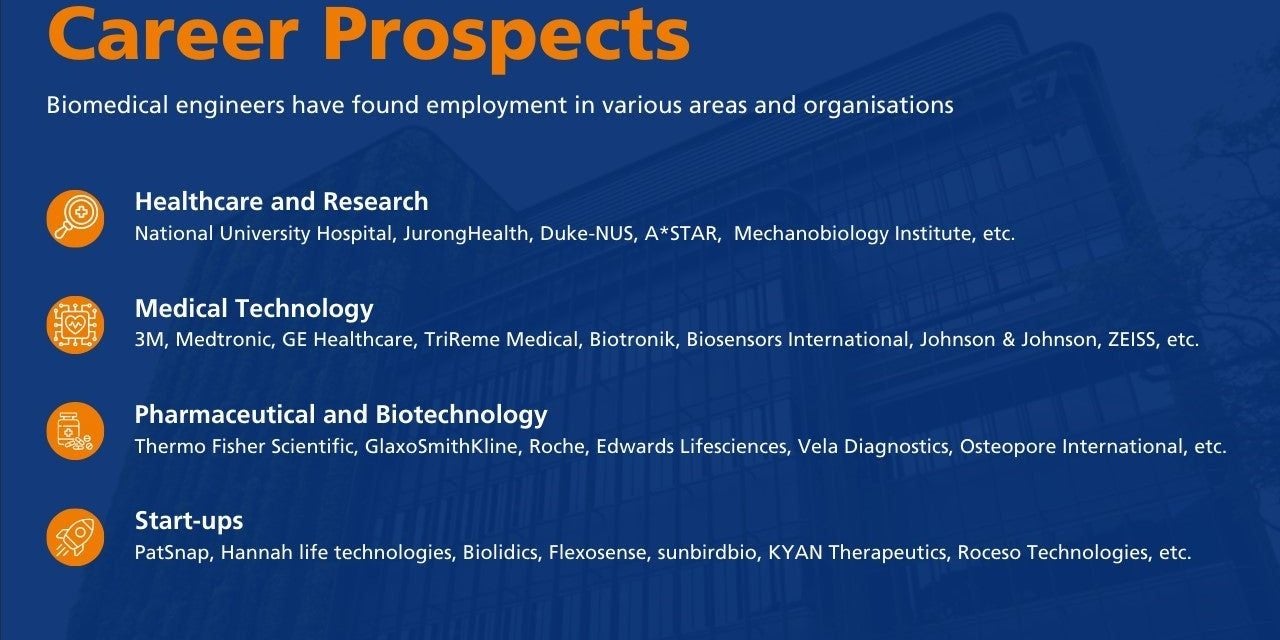
"With the APAC Medical Technology market projected to reach US$225 billion by 2030, our graduates are well-positioned to lead innovation in this growing sector," concludes Professor Poh. "Our focus remains on developing skilled professionals who can create meaningful impact in healthcare through engineering solutions."
For aspiring biomedical engineers looking to make their mark in healthcare innovation, NUS's MSc in Biomedical Engineering offers a compelling pathway to success. The combination of world-class faculty, industry-relevant curriculum, and strong employment prospects makes it an ideal choice for those seeking to advance their careers in this dynamic field.
To learn more and apply, visit the MSc in Biomedical Engineering web page.
Financial Support and Accessibility
The Global Fellowship Programme is open to all outstanding applicants, for any master’s coursework programme by CDE. It provides a 40% rebate for international students with additional rebates for Singapore citizens, PRs and NUS alumni. Learn more.
Read More
Department of Biomedical Engineering
Back to Scholar Insights to read more stories about CDE graduate programmes
College of Design and Engineering, NUS
Blk EA #06-16
9 Engineering Drive 1
Singapore 117575


